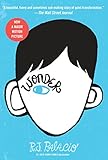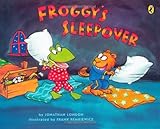Austrian Researcher Finds "Hidden" Chapter Of Biblical Text Using Ultraviolet Light
Language
Reading Level
Listen to Article
Alignment

An Austrian Academy of Sciences researcher has uncovered one of the earliest-known translations of the Gospel of Matthew using ultraviolet light (UV). Dr. Grigory Kessel made the discovery while studying an ancient manuscript that has been at the Vatican Library since the mid-20th century.
The text is written in Old Syriac, a language developed in ancient Syria in the first century. It was hidden beneath two other layers of text. Kessel believes the translation was originally produced in the third century and copied onto the parchment in the sixth century. About 1,500 years ago, it was erased to make room for a Greek translation. Sometime later, that too was replaced with the current version written in Georgian.
Reusing manuscripts was a common practice during the Middle Ages. That is because parchments, which were made of animal skin, were expensive and hard to find. The deleted text is invisible to the naked eye. However, the ink soaks into the parchment, leaving an imprint that glows blue under UV light.

"The manuscript offers a 'unique gateway' for researchers to understand the earliest phases of the Bible's textual evolution," Dr. Kessel said. It shows some differences from modern translations of the text."
For instance, the most commonly used version of Matthew 12:1 reads, "At that time Jesus went through the grainfields on the Sabbath, and his disciples became hungry and began to pick the heads of grain and eat."
The Old Syriac version, however, is slightly different. It says, [his disciples] "began to pick the heads of grain, rub them in their hands, and eat them."
Before the recent discovery, only two other documents with Old Syriac translations of the gospels had been found. One is housed at the British Library in London, and the other resides in a monastery in Egypt.
Resources: artnet.com, livescience.com, Businessinsider.com

Get the Workbook for this article!
Workbook contains: Article, Reading Comprehension, Critical Thinking Questions, Vocabulary in Context (+ answers), Multiple Choice Quiz (+ answers), Parts of Speech Quiz (+ answers), Vocabulary Game (+ answers)Cite Article
Learn Keywords in this Article
36 Comments
- lee1324over 1 yearI've never seen anything like it!
- flower1212over 1 yearWow! So cool!
- kittycatlover11over 1 yearcool
- colechri701over 1 yearwow just wow
- starjumpermooooover 1 yearMy, they are making new discoveries every day!
- antgirl24karrotover 1 yearthis is super cool!
- summer_beachover 1 yearThat's so cool! I wish I could read it.
- mariocrazy15over 1 yearOh wow!




